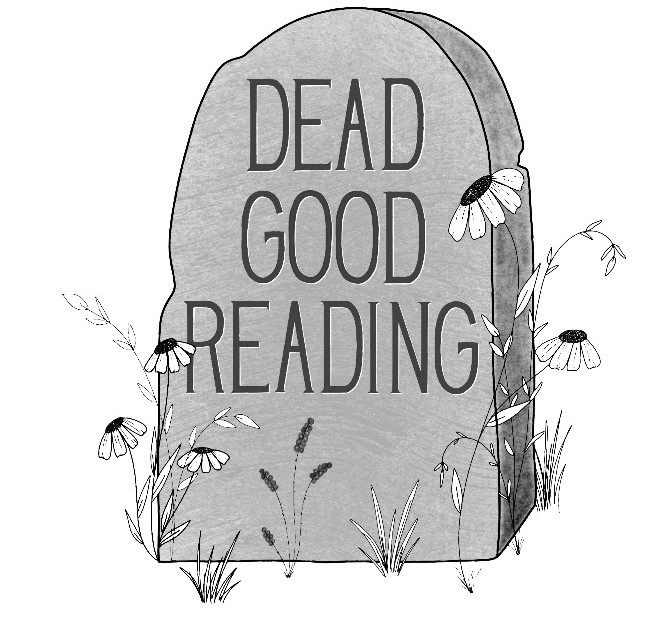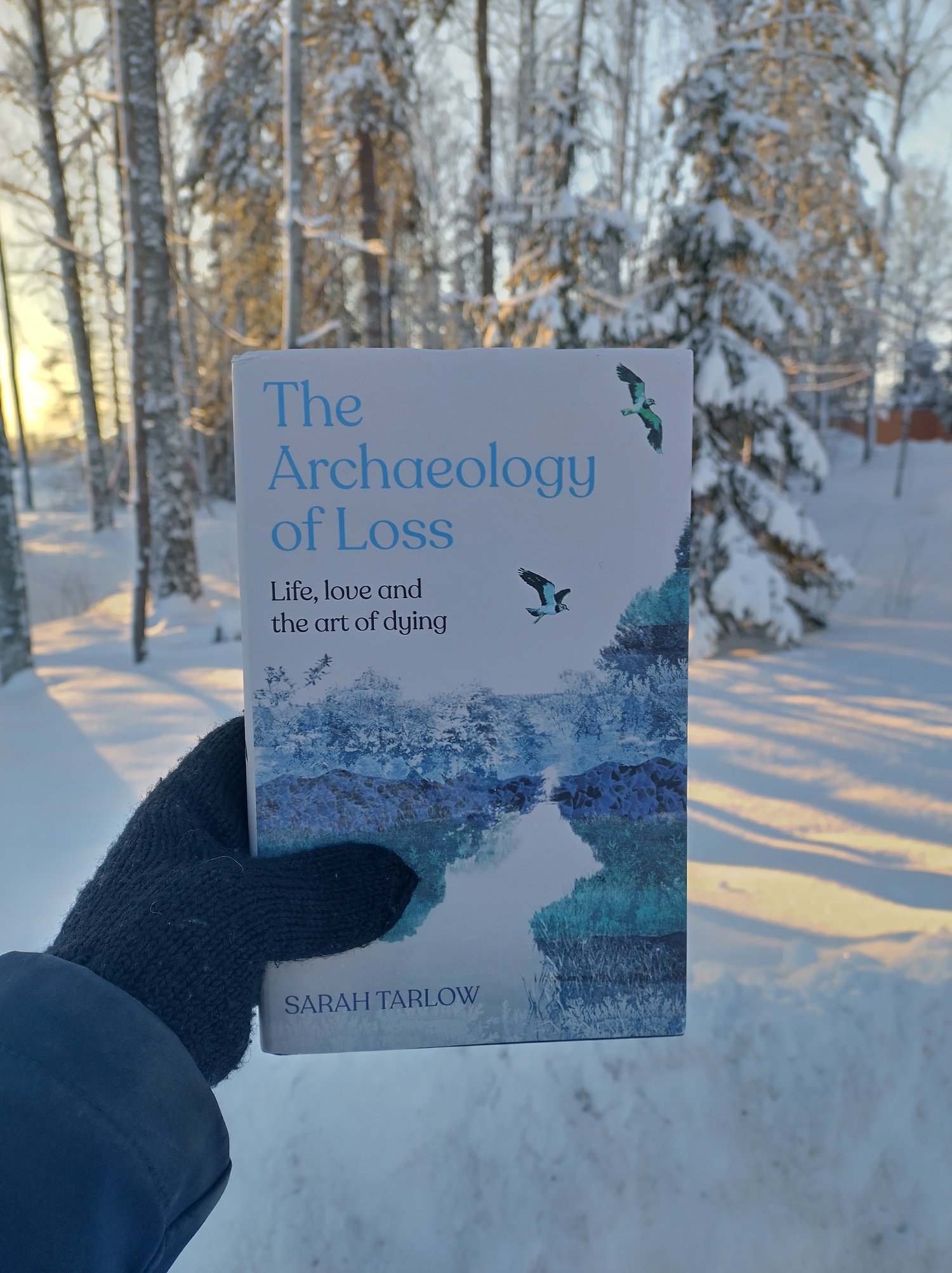Welcome to my first blog of 2024! After a bit of a hiatus I am back to scribble down my thoughts on books on death, dying and the dead. I have quite the stack of books waiting to be read, or already read, and waiting to be written about. This year will see reviews on memoirs, non-fiction, and a myriad of academic books, and perhaps the odd novel but I have discovered presently I enjoy reading most about ‘real’ things. An abundance of amazing death literature has been published and I look forward to sharing them with you here. To commence the year, we first return to what might seem ages ago, but in reality merely a week has elapsed.
In Iceland they have a Christmas tradition called Jólabókaflóðið, which translates to Yule Book Flood, or Christmas Book Flood. People gift each other books on Christmas Eve, and subsequently start reading these books immediately. One of my dear friends has gifted books for a number of years; her tendency to be extremely well prepared, combined with Brexit and increasing postage costs, mean I often receive this gift months prior during a visit to England. This year the book I had waiting for me, beautifully gift-wrapped in Christmas paper since July, was Sarah Tarlow’s The Archaeology of Loss. Life, love and the art of dying. Per tradition, I did start reading this book instantly and finished it almost in one sitting.
Sarah Tarlow is professor of historical archaeology and trained as a funeral celebrant. She is specialised in mortuary and commemorative practices. Academically, she has written extensively about death practices of the past. The Archaeology of Loss is Tarlow’s first memoir which describes the dying and death of her partner Mark and its aftermath. Tarlow eloquently links her personal narrative to academic understandings on death and loss found in the discipline of archaeology. Tarlow notes that archaeologists always work with fragmented data; remnants of the past that have survived, and it is up to them to craft a plausible story of the past.
“Our knowledge of the past is always incomplete, patched together out of material that is never enough, not quite the right thing and usually the wrong shape. My personal memories are not so different” (Tarlow, 2023 page 2-3).
In penning down her own story, Tarlow is acutely aware of the gaps in her own memory and the incompleteness of this ‘data’. Whilst she lived through this very recent past, Tarlow is left with questions about what actually happened.
In May 2016 Tarlow found her partner dead in bed. Tarlow and her children had spent the night at her brother’s and in their absence Mark had taken his own life. Important context is that Mark had been suffering from an illness with no hope for recovery for a while. He felt ordering medicine online and taking his own life this way was his only way out. At least that is what Tarlow suspects, as the current legal framework in the UK is such that Mark did not dare to tell Tarlow about his plan.
“Suicide has not been illegal for a long time. Yet failing to prevent someone else doing this entirely legal thing is still popularly and even judicially regarded as potentially criminal” (Tarlow 2023 page 201)
Whilst his death is classified as a ‘suicide’, Tarlow is highly critical of the limitations of the concept as she argues Mark’s death does not equate to other types of suicide. Tarlow believes that not all suicides can and should be prevented; if someone really wants to die, the possibility should be available to do this in a humane way.
“Not all suicide is the result of mental aberration. But the equation of suicide with psychopathology leads to a singular, medicalized view of an end that should at all costs be prevented. It’s part of our society’s futile and irrational war on death. Death, in any case, cannot be prevented , only postponed” (Tarlow 2023 page 247).
In The Archaeology of Loss Tarlow offers a critique to the current absence of assisted dying legislation in the UK and the fact that this means people who can afford this ‘go to Switzerland’ and others will craft plans like Mark did.
I applaud Tarlow for her candid and honest description of life as a carer, and the anger and rage that can come with this. Mark’s illness threw their lives upside down and it made Tarlow question their relationship and their love. It changed them both as people, and indeed changed Tarlow’s status from partner to carer; something neither signed up for.
Many people will get something out of this book, and I am not surprised the Royal Anthropology Institution of Great Britain and Ireland awarded this book the Public Anthropology Award in 2023. It evocatively shows a behind the scenes of life as an academic and highlights how complicated personal life can be. Tarlow brings carers out of the shadow and offers plenty of food for thought on relationships, loss, bereavement, suicide and cultural norms. I, for one, also look forward to delving in to some of her academic texts!
To learn more about Sarah Tarlow visit her website. The Archaeology of Loss is available online and, likely, in a bookshop near you!


Leave a Reply